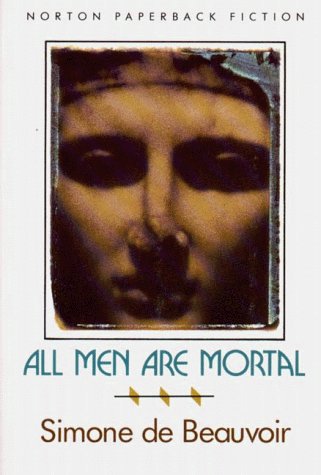
The Mandarins
Book Description
Torn between love, ambition, and the quest for authenticity, a group of passionate intellectuals navigates the turbulent waters of 1940s Paris. As they grapple with betrayal and desire, their friendships and romantic entanglements spiral into chaos. Each character faces the haunting question: can one truly be free while entangled in the bonds of society? With electric dialogues and vivid scenes, *The Mandarins* unveils the struggles of the human spirit against a backdrop of existential crises and revolutionary fervor. Will they find solace in their ideals, or will the weight of their choices shatter their bonds forever?
Quick Book Summary
"The Mandarins" by Simone de Beauvoir is a sweeping postwar novel that follows a group of French intellectuals as they confront personal and philosophical crises in the aftermath of World War II. Centered on Anne Dubreuilh, her husband Robert, and their circle of friends, the story explores love, betrayal, and the burden of freedom amid the political upheavals of 1940s Paris. Torn between loyalty, desire, and intellectual duty, the characters struggle with existential questions about how to live authentically in a world scarred by war and moral ambiguity. De Beauvoir probes the limits of personal happiness against the responsibilities of social and political engagement. With nuanced characterizations and philosophical depth, "The Mandarins" immerses readers in the passionate debates and emotional turmoil defining an entire generation.
Summary of Key Ideas
Table of Contents
Existential Freedom and Responsibility
Set in Paris just after the Second World War, "The Mandarins" thrusts readers into a turbulent era when intellectuals must redefine their roles in a changed world. The story revolves around Anne Dubreuilh, a psychoanalyst, and her husband Robert, leader of a leftist political group. Their close circle of friends—including writers, politicians, and thinkers—grapple with the aftermath of conflict, the trauma of occupation, and shifting alliances as they shape France's intellectual and political future.
The Tension Between Personal and Political Commitments
At the heart of the novel lies the struggle between personal desire and public duty. Anne embarks on a passionate affair with an American writer, Lewis Brogan, complicating her notions of love, fidelity, and freedom. Many characters confront the challenge of remaining true to their own beliefs while being useful to their movements and each other. The novel examines how ideological commitment can both bond and fracture relationships, revealing the high personal cost of activism and loyalty.
The Complexity of Love and Betrayal
The existential dilemma permeates every aspect of the characters' lives. De Beauvoir interrogates what it means to choose freely and to bear the responsibility for one's choices. Each member of the group confronts moments when their autonomy is tested, whether in politics, art, or romance. These moments shape their sense of self and ultimately dictate the trajectory of their lives. The book's conversations brim with philosophical inquiry, illustrating the existential angst and hope of its time.
Search for Authenticity
Love, betrayal, and longing predominate, intertwining with questions of authenticity and purpose. Anne's conflicted emotions mirror the confusion that many feel: whether to pursue personal happiness or to sacrifice for a grander cause. Characters must navigate the betrayal of friends, the pain of lost ideals, and the temptation to withdraw from a world that disappoints them. Their internal struggles mirror the external chaos of a society rebuilding from ashes.
Postwar Disillusionment and Hope
Ultimately, "The Mandarins" offers no simple answers, only the persistent tension between ideals and realities. The characters emerge wounded yet wiser, recognizing the necessity of compromise and the impossibility of pure freedom. De Beauvoir leaves readers with the enduring question of whether authentic living is possible amid societal constraints and whether intellectual engagement can foster true change or will inevitably be compromised by human flaws.
Download This Summary
Get a free PDF of this summary instantly — no email required.





